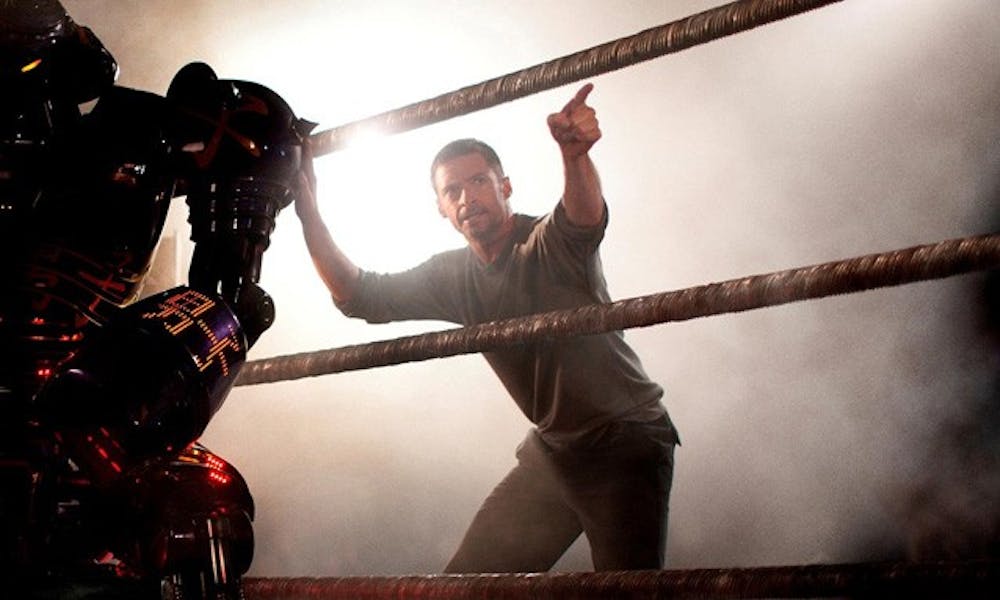Any film featuring boxing robots is bound to elicit some Rock ‘Em Sock ‘Em Robots jokes, but Real Steel is about much more than knocking blocks off. Granted, the film is built on a weak premise and justified only in weaker fashion, but if not taken cynically, Real Steel has massive entertainment value that isn’t based off explosions, slow motion sequences or gratuitous hot girls.
Director Shawn Levy, who helmed other audience-acclaimed films Night at the Museum and Date Night, capably handles this project, inserting subtle humor that aims for chuckles without reaching for tear-inducing laughter. Moreover, Levy balances the central story against interesting subplots without losing direction during tangents. Though these side-stories might want for detail at times, Levy’s decision to leave more to the imagination keeps the film moving and encourages viewers to retrospectively fill in gaps for themselves. In this way, Levy never abandons his main plot, choosing instead to focus on the present and accentuate the performances of the actors themselves.
Hugh Jackman, clearly the senior actor on the set, plays Charlie Kenton, an ex-contender bitter over his past failures. Though Kenton is a far cry from a lovable protagonist, Jackman’s performance is intriguing enough to keep viewers following him. The real beauty of his role, however, is the way he complements his co-star Dakota Goyo, who plays Max Kenton, Charlie’s estranged son. In his first major role on the silver screen, Goyo comes through with passion and excitement perfectly fitting his almost-too-mature 11-year-old character. Jackman balances his acting with Goyo’s, sitting back and letting the younger actor take the center stage. It is largely this interplay that gives the film its appeal and strength. Evangeline Lilly, playing Charlie’s romantic interest Bailey, rounds out the notable cast. Even with limited screen time, Lilly handles her role with grace, toeing the line enough to interest any red-blooded male but not so much as to be tasteless.
Despite these positives, the movie about fighting robots fails because, ultimately, it is about fighting robots. Based in 2020, where robot boxing has replaced human boxing—because human boxing simply isn’t violent enough—Real Steel really stretches the audience to accept its premise. Charming though the film may be, it isn’t enough to impress even the most mildly cynical movie-goers. But it does have entertainment value, even if it won’t stand as a top fighting film.
Get The Chronicle straight to your inbox
Signup for our weekly newsletter. Cancel at any time.

